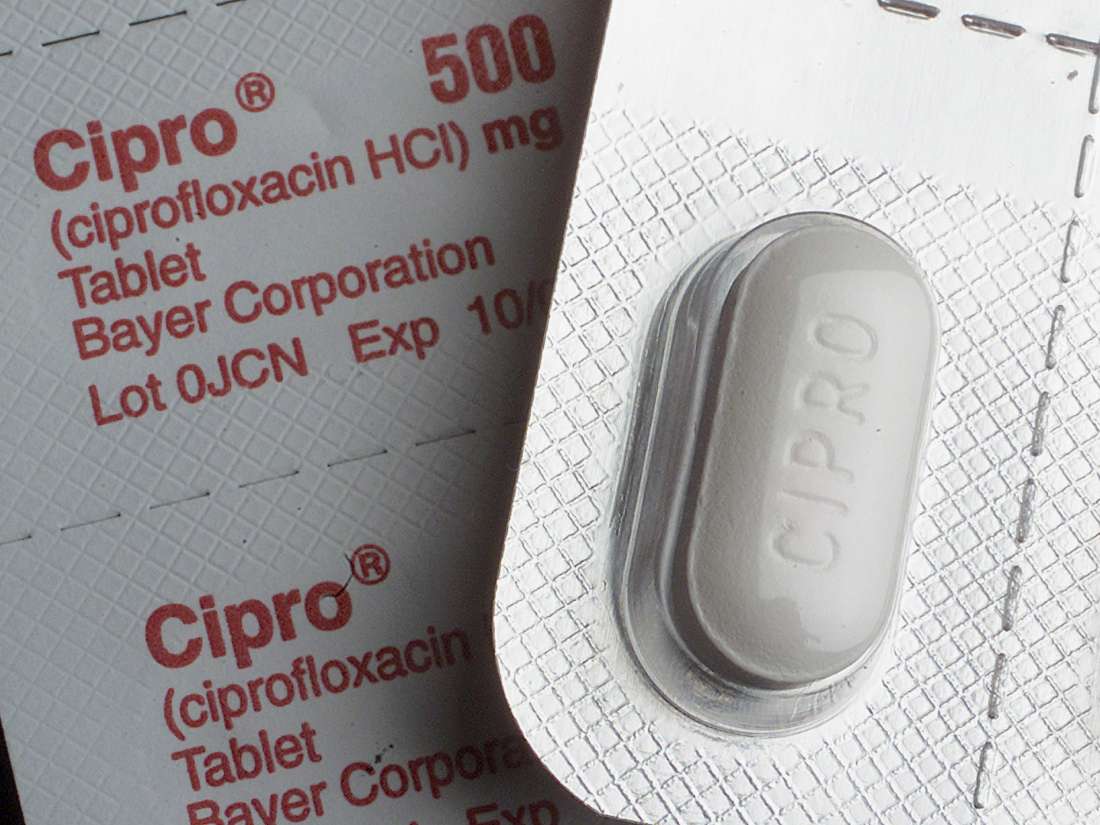Taking The Wrong Antibiotic Or Taking Them The Wrong Way
Antibiotics are medications that attack bacteria. Since UTIs are caused by bacteria, your doctor may give you an antibiotic to make the infection go away.
Sometimes, the medicine is not good at fighting the infection. If you take the medicine and still feel sick, tell your doctor. There is more than one UTI treatment. If the first one does not work, you can try a different one.
In one study, researchers looked at 670,450 women with UTIs. About half of the women were given an antibiotic that did not work. Many of the women also took the medications longer than was needed to make the infection go away.
You might get the right medication but make a mistake when you take it. If you take the medication the wrong way, your symptoms might not get better. You could also get a UTI again or get a worse infection.
Here are some important things to know about taking antibiotics for a UTI:
- Keep taking your antibiotics even if you start feeling better. You need to take all the doses to make sure the infection goes away. Do not “save” any of the medicine for later.
- Only take the medicine your doctor gave to you.
- Do not give your antibiotics to other people.
Practice Good Sexual Hygiene
Some sexual intercourse bacteria and other microbes into the urinary tract. Practicing good sexual hygiene can help to reduce this risk.
Examples of good sexual hygiene include:
- urinating before and immediately after sex
- using barrier contraception, such as a condom
- washing the genitals, especially the foreskin, before and after engaging in sexual acts or intercourse
- ensuring that all sexual partners are aware of any current or past UTIs
How Quickly Will The Infection Spread Is There Anything I Can Do To Stop It Getting Worse
The speed at which an infection spreads depends on many factors, including the type of bacteria causing the infection, how long they infection has been present for, the genetics of the bacteria involved and the health and habits of the person affected. It remains important to maintain good hygiene and follow the advice of your doctor or clinical specialist, and to let them know if you notice any changes in your condition. The biggest risk is that the infection is not treated quickly enough or effectively and the risk of developing kidney infection, inflammation or urosepsis increases. When the bacteria spread from the urinary tract or bladder into the bloodstream, it is commonly called urosepsis, and can be very serious.
Recommended Reading: Sinus Infection And Hearing Loss
Im Pregnant How Will A Uti Affect My Baby
If you have a UTI and it isnt treated, it may lead to a kidney infection. Kidney infections may cause early labor. Fortunately, asymptomatic bacteriuria and bladder infections are usually found and treated before the kidneys become infected. If your doctor treats a urinary tract infection early and properly, it wont hurt your baby.
Are Urinary Tract Infections Contagious

You cannot pass a UTI on to another person. However, if you have an infection of any type particularly one that is antibiotic resistant there is always a risk that the bacteria causing the infection could infect those around you if you do not adhere to proper hygiene standards. If you have an ESBL resistant infection, you will often be kept in isolation in a hospital ward, to decrease the risk of spreading these bacteria to other vulnerable patients. For prevention of UTIs, it is particularly important that you wash your hands after using the bathroom and after sexual contact, and maintain a clean environment.
Find out more about what you can do to prevent the spread of harmful bacteria.
Recommended Reading: Is Ampicillin Good For Tooth Infection
A Pharmacist Can Help With Utis
You can ask a pharmacist about treatments for a UTI.
A pharmacist can:
- offer advice on things that can help you get better
- suggest the best painkiller to take
- tell you if you need to see a GP about your symptoms
Some pharmacies offer a UTI management service. They may be able to give antibiotics if they’re needed.
When To Get Medical Advice
It’s a good idea to see your GP if you think you might have a UTI, particularly if:
- you have symptoms of an upper UTI
- the symptoms are severe or getting worse
- the symptoms haven’t started to improve after a few days
- you get UTIs frequently
Your GP can rule out other possible causes of your symptoms by testing a sample of your urine and can prescribe antibiotics if you do have an infection.
Antibiotics are usually recommended because untreated UTIs can potentially cause serious problems if they’re allowed to spread.
You May Like: Oral Medication For Yeast Infection Prescription
Who Is At Risk From Antibiotic
Those at greatest risk of antibiotic resistant infections are often those with other underlying medical conditions, who have weakened immune systems either due to illness or as a side-effect of current treatment. Those often affected have already been taking antibiotics or have been in hospital. Older people, such as those in care facilities or those undergoing catheterisation may also be affected by ongoing or recurrent resistant UTIs.
The biggest risk is that untreated or resistant infections can lead to kidney problems or even more serious conditions like sepsis . However, it is also very difficult living with the ongoing symptoms of recurring or antibiotic resistant UTIs.
Living With Urinary Tract Infections
If you have 3 or more urinary tract infections each year, your doctor may want you to begin a preventive antibiotic program. A small dose of an antibiotic taken every day helps to reduce the number of infections. If sexual intercourse seems to cause infections for you, your doctor many suggest taking the antibiotic after intercourse.
Don’t Miss: Bladder Infection Symptoms In Kids
Antibiotic Overuse Leads To Antibiotic Resistance
At some point, most people have taken a course of trimethoprim/sulfamethoxazole or ciprofloxacin , two common antibiotics used for UTIs. However, in the last few years it has become clear that the likelihood these antibiotics will kill most UTIs is dropping rapidly. You may have read the recent, frightening New York Timesarticle reporting one in three uncomplicated UTIs in young healthy women are Bactrim-resistant and one in five are resistant to five other common antibiotics. Pretty scary, since we used to feel confident that writing a prescription for Bactrim was a sure recipe for cure.
How is it that we are losing the antibiotic war with bacteria? Though many things drive bacterial resistance, giving antibiotics to animals and antibiotic overuse in humans top the list.
We use a lot of antibiotics in humans too much, and not always for the right reasons. When we prescribe antibiotics for viral illnesses like a cold, the flu, or common sinusitis, we create a massive shift in the bodys bacteria for no good reason .
Otc Uti Treatment: Key Takeaway
Women are prone to contracting a urinary tract infection at least once in their life. Certain UTIs do not need treatment if they are diagnosed on time and if the symptoms are cared for, however, some UTIs require medical intervention in the form of antibiotics.
While antibiotics are the standard treatment for UTIs, researchers are looking for better OTC treatment options for UTI symptoms that might eliminate their need. Several OTC UTI treatment drugs help prevent and manage UTI symptoms but should never be considered a replacement to prescribed antibiotics. The only clinically proven cure for a UTI is a prescribed antibiotic and nothing else as of yet.
If you think you have a UTI, you may visit Family Medicine Austin and consult our healthcare experts. It is always advised to avoid self-treatment and seek medical help.
I am Jeannette, the medical writing specialist here at Family Medicine Austin. I have over five years of experience working with a range of medical and healthcare across the U.S.
Complete The Form Below And Well Get Back To You Immediately.
Also Check: Can Ear Infections Go Away
Can I Become Immune To The Antibiotics Used To Treat A Uti
Your body can actually get used to the antibiotics typically used to treat a urinary tract infection . This happens in people who have very frequent infections. With each UTI and use of antibiotics to treat it, the infection adapts and becomes harder to fight. This is called an antibiotic-resistant infection. Because of this, your healthcare provider may suggest alternative treatments if you have frequent UTIs. These could include:
- Waiting: Your provider may suggest that you watch your symptoms and wait. During this time, you may be encouraged to drink plenty of fluids in an effort to flush out your system.
- Intravenous treatment: In some very complicated cases, where the UTI is resistant to antibiotics or the infection has moved to your kidneys, you may need to be treated in the hospital. The medicine will be given to you directly in your vein . Once youre home, you will be prescribed antibiotics for a period of time to fully get rid of the infection.
Chronic Or Recurring Utis

Some people get UTIs more often than others. They might have UTIs that last a long time or that come back more than 3 times in a year .
You might have heard that cranberry juice or cranberry pills can help if you get UTIs a lot. Some studies have tested whether cranberry products with the fruit sugar D-mannose benefit people who get UTIs. More research needs to be done to see how well they work.
Read Also: How To Diagnose Kidney Infection Vs Uti
How Antibiotic Resistance Got Started
Before antibiotics, mainstream medicine had no options for treating internal bacterial infections. Doctors gave basic wound care, applied topical antiseptics to reduce infection, and they hoped their patients would eventually fight off the infection and recover on their own. Without these medicines and having limited knowledge of alternative therapies, internal infections often became deadly.
When antibiotics were first discovered in the 1930s and 40s, they truly were a miracle cure, quickly stopping otherwise deadly infections. These powerful antimicrobials soon became the standard treatment method for bacterial infections. These therapies worked so well and became so popular that they began to get overused and even abused. To this day, doctors routinely prescribe antibiotics for ailments that they cannot treat, such as a cold, flu and other viral or fungal infections. And, they are often prescribed just in case, even if there is no sign of a bacterial infection.
Amazingly, the biggest use of antibiotics is outside of healthcare. The livestock industry is by far the biggest user of these important therapeutic drugs accounting for 80% of all antibiotic sales in the US. Feeding antibiotics to livestock allows factory farms to keep animals in overcrowded and disease-ridden conditions without getting sick. This means farms can raise more animals in smaller areas for less money. They also make animals grow fatter and larger, further increase profits.
Consider Switching Birth Control Methods If You Have Repeat Bladder Infections
If you have trouble with repeat bladder infections, talk with a health care professional about your birth control. Consider switching to a new form of birth control if you use diaphragms, unlubricated condoms, or spermicide, all of which can increase your chances of developing a bladder infection. Consider using lubricated condoms without spermicide or using a nonspermicidal lubricant.
Read Also: Will Allergy Medicine Help Sinus Infection
Option #: Uti Symptoms Return After Antibiotics
Another story is when your urine test did show a UTI. You then took antibiotics, felt completely fine, but several days later woke up with the same nasty UTI symptoms.
Here two options are possible: we were unable to eliminate the infection completely or it is reinfection, says Dr. Hawes if only 2-3 days elapsed since treatment and symptoms recurred, most likely we were not able to clear the infection. However, if you get an infection 2-3 weeks after your last antibiotic treatment, count it as reinfection.
What Happens If I Have A Multidrug
Some strains of bacteria are now resistant to all of the most commonly used antibiotics. When UTIs recur or dont go away with treatment, urine samples are usually tested at a microbiology lab, and if resistant organisms are discovered they are often found to be ESBL E. coli or ESBL Klebsiella. If you have a UTI with either of these resistant bacteria, you will probably be treated in hospital by an infectious disease doctor and their team. They will often prescribe a specific antibiotic via an intravenous drip known to be active against ESBL- producing bacteria such as a carbapenem antibiotic. These are considered last resort antibiotics which are kept especially for those highly resistant bacterial infections.
If you have an antibiotic-resistant UTI, youre not alone. There are many different support groups online where people suffering with resistant UTIs can help one another.
Read Also: B12 Shots For Sinus Infection
Recommended Reading: Can Ear Infection Cause Runny Nose
Whats The Difference Between A Urinary Tract Infection And Bladder Infection
A urinary tract infection is a more general type of infection. There are many parts of your urinary tract. A UTI is a term for an infection that takes place throughout the urinary tract. A bladder infection, also called cystitis, is a specific infection. In this infection, bacteria makes its way into the bladder and causes inflammation.
Not all urinary tract infections become bladder infections. Preventing the spread of the infection is one of the most important reasons to treat a UTI quickly when you have symptoms. The infection can spread not only to the bladder, but also into your kidneys, which is a more complicated type of infection than a UTI.
Enhancing Healthcare Team Outcomes
The management of complex UTIs is best performed by an interprofessional team that includes a urologist, nephrologist, infectious disease expert, internist, pharmacist, and primary care provider.Complicated UTIs need to be treated more carefully to serve patients with these infections and to avoid overuse and misuse of antibiotics that will ultimately result in more resistant infections in the future. Using the right antibiotic for the right duration is key. Practitioners should not hesitate to take advantage of infectious disease specialty services in these situations to help optimize antibiotic use.
Failure of a standard UTI or pyelonephritis to respond to initial treatment should suggest other medical problems such as diabetes, sepsis, an abscess, urinary retention, or an obstructing stone with a possible pyonephrosis. Bladder drainage with a Foley and appropriate imaging tests can identify these problems.
These patients need close monitoring because of potential complications. The outlook for patients with severe UTIs is guarded, and even those who do recover tend to have a prolonged recovery period.
You May Like: Ice Or Heat For Tooth Infection Swelling
An Ounce Of Prevention
Unfortunately, most UTIs are not completely preventable, and are caused by differences in the structure or function of the urinary tract and immune system. But there are things you can do to keep healthy. For example, stay hydrated to increase urine production and flush out unwanted bacterial intruders. Good hygiene is also important, but scrubbing away at delicate genital tissues can damage them and create portals for bacteria. Clean your genital area gently with mild soap and water. Postmenopausal women may benefit from vaginal estrogen cream. Finally, eating cranberries and urinating after having sex havent been proven to have major benefits, but arent likely to hurt, either.
Follow me on Twitter@lisa_xpond
About the Author
Lisa Bebell, MD, Contributor
What Does It Mean If Your Uti Symptoms Are Getting Worse Even Though Youve Already Taken Four Or Six Antibiotic Pills

Does this mean you dont have a urinary tract infection after all, but some other condition?
And is it just a coincidence that the urinalysis showed trace amounts of bacteria and leukocyte esterase?
UTIs may get worse while taking an antibiotic for several reasons, says Michael Ingber, MD, board certified in urology, female pelvic medicine and reconstructive surgery, and founder of The Center for Specialized Womens Health, division of Garden State Urology.
First, it does take some time, typically several hours, before the antibiotic is absorbed into the system and before it gets into the bladder, continues Dr. Ingber.
Second, the antibiotic sometimes may not be effective. In cases of resistant UTI, symptoms may worsen.
This is why, typically, I instruct women to contact me should their symptoms persist or worsen after 2-3 doses of the antibiotic.
Thus, no improvement after only one day is nothing to fret about.
Don’t Miss: How Do Adults Get Ear Infections
The Benefits Of Alternative Therapies
While antibiotics can be powerful and effective against Staph and MRSA, they have some big downsides and limitations. And pharmaceutical companies are unable to come up with new drugs fast enough to keep up with demand and growing resistance.
As such, it is very important to educate yourself about the many alternative remedies available. Certain medicinal essential oils and herbs and Manuka honey have been shown effective in breaking down biofilm structures and killing MRSA, Staph and other bacteria. Alternatives can generally be used alone or together with your antibiotics. And, they have few if any side effects.
If you choose to use antibiotics, use them knowledgeably, only when absolutely necessary and after confirming that it works against your infection. You can also work with a integrative or naturopathic doctor and try an alternative remedy first, especially if youre infection is mild to moderate.
- What are the most common MRSA antibiotics and what are their side effects?